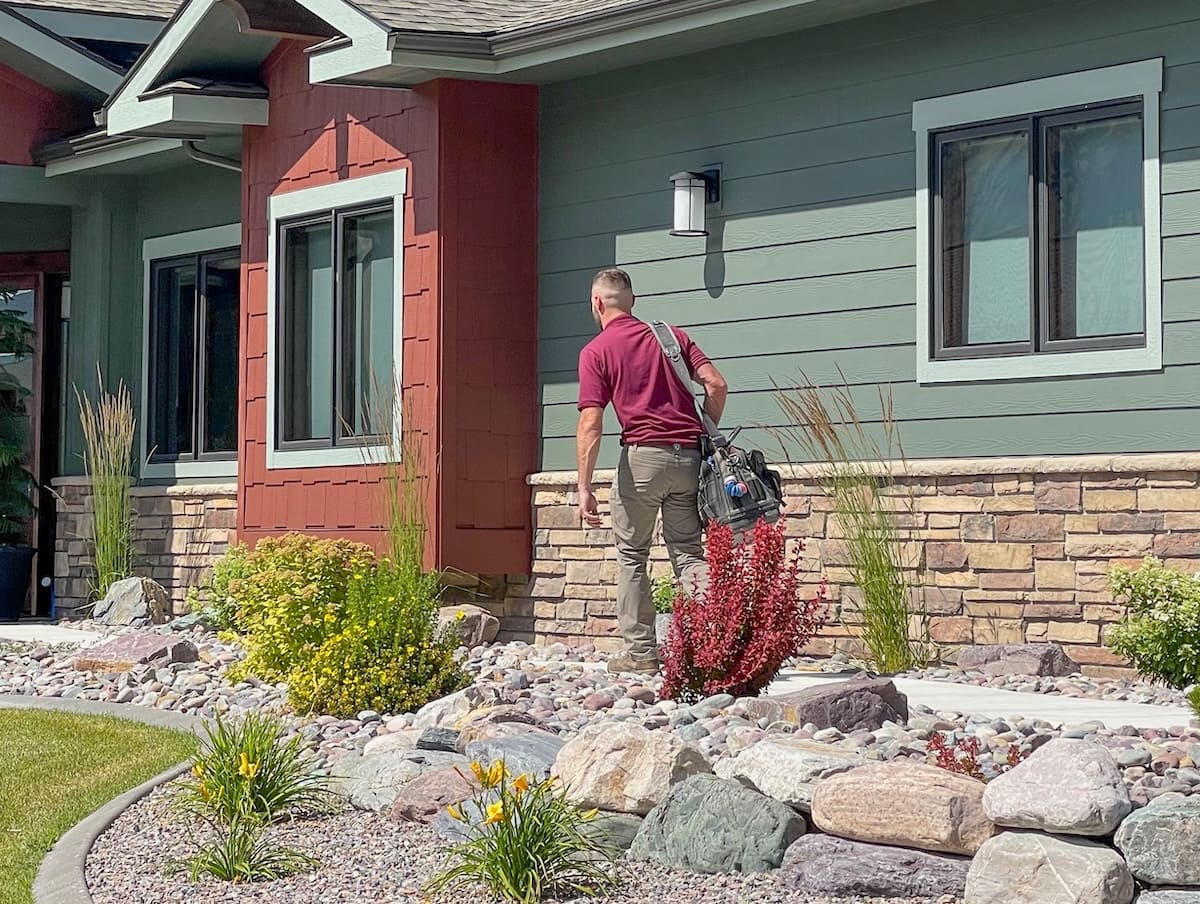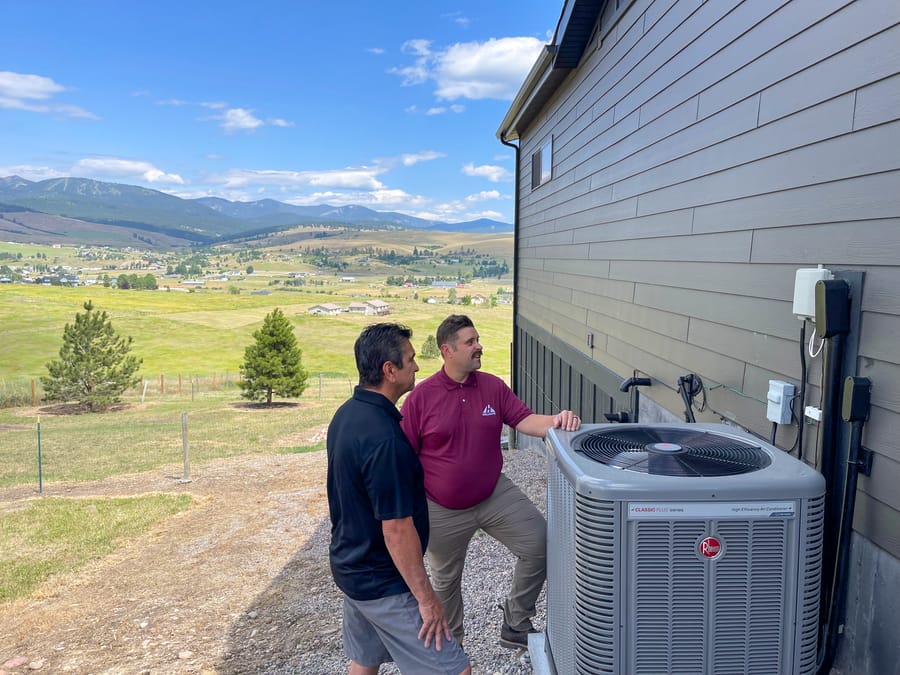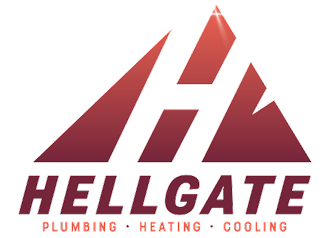HVAC Services in the Greater Missoula Area

When your heating or cooling system is not working properly, your comfort disappears fast. Uneven temperatures, rising energy bills, or a system that will not turn on can make your home frustrating and uncomfortable, especially during Missoula’s extreme seasons. These problems rarely fix themselves. Delaying HVAC service can lead to bigger repairs, higher costs, and unexpected breakdowns at the worst possible time. A struggling system also works harder than it should, putting unnecessary strain on your equipment and your budget.
Hellgate Plumbing, Heating and Cooling provides reliable HVAC services to restore comfort and protect your home. Our experienced technicians diagnose issues accurately, offer straightforward recommendations, and deliver solutions designed for Montana homes and climate conditions.
If your HVAC system needs attention, contact Hellgate Plumbing, Heating and Cooling today. Call our team to schedule service or reach out through our online contact form to get started.

Our HVAC Services
Your comfort depends on an HVAC system that is properly installed, well maintained, and serviced by professionals who understand Missoula’s conditions. Hellgate Plumbing, Heating and Cooling offers complete HVAC services to keep your home efficient, reliable, and comfortable through every season.
Air Conditioning Services
When summer temperatures rise, a dependable air conditioning system makes all the difference. We provide AC installation, repairs, maintenance, and replacement to keep your system running efficiently and reliably. Our team services all major brands and helps you choose solutions that fit your home and budget.
Heating Services
Cold winters demand heating systems you can count on. We service furnaces, boilers, heat pumps, and fireplaces to ensure safe, consistent heat throughout your home. From routine tune-ups to system replacements, we help you stay warm when it matters most.
Ductless Mini-Split Systems
Ductless mini-split systems offer flexible comfort without the need for ductwork. These systems are ideal for home additions, individual rooms, or spaces with uneven temperatures. We install and service mini-splits to provide efficient, targeted heating and cooling.
Indoor Air Quality Solutions
Indoor air quality plays a major role in your comfort and health. We offer solutions designed to reduce dust, allergens, and airborne pollutants inside your home. Cleaner air can also help your HVAC system run more efficiently and last longer.
Duct Cleaning
Dirty ductwork can restrict airflow and circulate debris throughout your home. Professional duct cleaning removes buildup that can impact comfort and system performance. This service helps improve air circulation and supports healthier indoor air.
We're here to help!
Our team will help you select the perfect Rheem model for your specific needs.
Why Homeowners Trust Hellgate
Choosing the right HVAC company matters. Homeowners throughout Western Montana trust Hellgate Plumbing, Heating and Cooling because we focus on honest service, quality workmanship, and long-term comfort, not quick fixes.
- Local experience: We understand Western Montana homes, weather conditions, and the demands placed on heating and cooling systems throughout the year. That local knowledge allows us to recommend solutions that actually work for this region.
- Skilled technicians: Our team is trained to service all major HVAC brands and system types. Every job is completed with attention to detail and respect for your home.
- Straightforward recommendations: We take the time to explain your options clearly so you can make informed decisions. You will never be pushed into unnecessary repairs or replacements.
- Reliable service: When your comfort is on the line, you need a company that shows up and does the job right. We prioritize responsive scheduling and dependable workmanship on every service call.
- Complete home comfort solutions: From heating and cooling to indoor air quality, we handle your HVAC needs under one roof. That means fewer headaches and consistent service you can trust.
Schedule HVAC Service in Western Montana
When your home’s comfort is on the line, it is important to work with a team you can trust. Hellgate Plumbing, Heating and Cooling is ready to help with dependable HVAC services designed for Missoula homes and seasonal demands.
If your system needs repair, maintenance, or replacement, contact our team today. Call us to schedule HVAC service or use our online contact form to request an appointment at a time that works best for you.
Don’t Wait…..Call Hellgate.
Free
HVAC Install QuotesExpires: Mar 31, 2026
Fill out this form and our team will get back to you as soon as possible.
Frequently Asked Questions
Get Assistance Today
Don't Wait... Call Hellgate
Responsive and reliable. Help when you need it most. Hellgate Plumbing, Heating and Cooling has provided residents of Missoula, Lolo, Florence, MT, and beyond with reliable and affordable HVAC and plumbing services for over 40 years.
